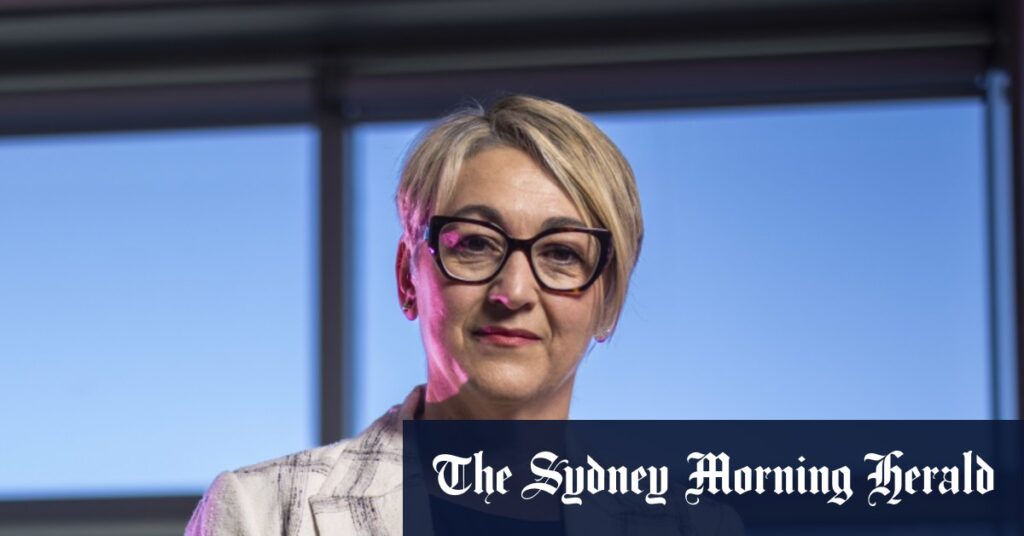Controversy Surrounds Menopausal Hormone Therapy Claims in Australia
A medical expert, who preferred to remain anonymous due to the ongoing debates surrounding menopausal hormone therapy (MHT), has revealed that at least five Australian medical professionals have raised concerns with the Royal Australian College of General Practitioners (RACGP) about misleading claims made during the "So Hot Right Now" events.
Ideology vs. Evidence
These specialists contend that some speakers prioritize ideology over the evidence surrounding the effectiveness of hormone therapies. The prevailing ideology posits that women have the right to hormone treatments that could potentially render menopause optional in the future.
Susan Davis, a professor specializing in women’s health, has pointed out that misinformation about hormonal treatments could lead menopausal women to miss out on crucial therapies. She cautions that advice from influencers lacking research foundation could endanger women’s health choices.
MHT and Its Polarization
Menopausal hormone therapy has become a highly politicized subject. Many international practitioners have garnered significant followings by promoting hormones that they claim can provide transformative health benefits; notably, some of these practitioners sell their own health products. However, established researchers like Professor Davis have criticized these narratives, asserting that representations of certain hormonal treatments as groundbreaking lack substantial clinical trial backing.
Questionable Claims About Testosterone
Davis challenges the assertion made by some advocates, such as Louise Newson, that testosterone therapy significantly enhances energy, concentration, and motivation in women. She refutes the notion that testosterone levels decline at menopause and remain low indefinitely. Research from Davis and her peers has demonstrated that testosterone levels can actually rise from the mid-60s, contradicting previous claims about hormone levels during menopause.
A spokesperson for Newson stated that the topic of education accreditation concerning the "So Hot Right Now" event rests with the conference organizers, emphasizing that the Care Quality Commission (CQC) is conducting a routine inspection of Newson Health rather than a formal investigation. They maintain confidence in the care quality they deliver.
Cancer Risks and Clinical Evidence
Professor Martha Hickey, chair of obstetrics and gynecology at Melbourne University, highlighted how certain influencers are downplaying the evidence indicating that combined menopausal hormone therapy increases breast cancer risk. According to the largest randomized controlled trial on MHT, there is a 56% increase in breast cancer risk after ten years of combined therapy use. Critics argue that claims made by proponents of newer MHT products lacking robust data are misleading.
While Davis is conducting trials to explore testosterone therapy’s potential benefits for preventing bone loss and improving muscle mass, she has noted that both placebo and active treatment groups reported feeling better, raising questions about the actual efficacy of testosterone.
Misinformation Impacts Women’s Health
Davis expressed concern about the ramifications of misinformation circulating online, stressing that it could lead women to overdose on testosterone formulations intended for men or miss out on necessary treatments for depression. “Clinical trials show no evidence that testosterone improves depressed mood when compared with placebo,” she stated.
Dr. Sarah White, chief executive of Jean Hailes for Women’s Health, echoed these concerns, warning that misinformation from supposed experts diminishes the perceived care women are receiving and could compromise their trust in their general practitioners (GPs).
Organizers Respond to Criticism
Dr. Ceri Cashell, the key organizer of "So Hot Right Now," expressed surprise that the RACGP had not directly communicated its concerns regarding the conference. She noted that the event is no longer listed on the RACGP-affiliated medical education platform, PraxHub.
Dr. Cashell assured attendees that the conference would focus exclusively on current evidence related to testosterone use in menopausal women for low libido. Furthermore, respected experts, including Professor Jayashri Kulkarni, maintain that conversations about patient care should emphasize scientific evidence while also valuing the art of medicine, which encompasses experienced care and understanding.
As of Saturday afternoon, the conference was still being marketed as approved by the RACGP, offering six hours of accredited education for GPs.
Conclusion
The ongoing debate around menopausal hormone therapy highlights the need for clear, evidence-based communication regarding women’s health issues. The influence of social media and unauthoritative voices may undermine trust in genuine medical advice, making it essential for women to seek informed, evidence-backed guidance during this critical stage of life.


